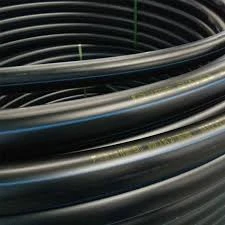Dez . 26, 2024 03:04 Back to list
pvc electrical pipe
Understanding PVC Electrical Pipes Advantages, Applications, and Considerations
When it comes to electrical installations, the choice of materials significantly impacts the overall efficiency, safety, and longevity of the system. Among the various options available, PVC (Polyvinyl Chloride) electrical pipes stand out due to their numerous advantages, making them a popular choice in both residential and commercial applications.
What is PVC Electrical Pipe?
PVC electrical pipes, manufactured from polyvinyl chloride, are designed specifically for housing electrical wires and cables. These pipes serve as conduits, offering protection against physical damage and environmental elements. Due to their lightweight nature and corrosion-resistant properties, PVC pipes have become a staple in electrical installations.
Advantages of PVC Electrical Pipes
1. Durability One of the primary benefits of PVC electrical pipes is their outstanding durability. Unlike metal conduits that can corrode or rust over time, PVC is resistant to moisture, chemicals, and UV rays. This property ensures a longer lifespan, making it a wise investment for long-term projects.
2. Lightweight PVC pipes are significantly lighter than their metal counterparts, making them easier to handle and install. The reduced weight also means lower shipping costs and easier transportation to job sites.
3. Cost-Effective Compared to other conduit materials like steel or aluminum, PVC pipes are generally more affordable. Their lower material costs, combined with the reduced labor expenses associated with their lighter weight, contribute to overall project savings.
4. Non-Conductive As a non-metallic conduit, PVC does not conduct electricity, providing an added layer of safety. This characteristic reduces the risk of electrical shock and short circuits, particularly in wet or damp environments.
5. Variety of Applications PVC electrical pipes are versatile and can be used in a wide range of applications, from residential wiring to industrial installations. They are particularly useful in outdoor settings where exposure to moisture and other environmental factors is a concern.
6. Easy Installation PVC pipes can be joined using adhesives, eliminating the need for specialized tools and equipment typically required for metal conduits. This ease of installation can save valuable time on construction sites.
pvc electrical pipe

Applications of PVC Electrical Pipes
PVC electrical pipes are widely used in several contexts, including
- Residential Wiring Homeowners frequently utilize PVC conduits for wiring in basements, attics, and outdoor structures, providing protection and a clean aesthetic. - Commercial Buildings Businesses rely on PVC pipes for electrical pathways to protect wiring runs throughout the premises, ensuring safe and efficient operations. - Industrial Settings Factories and industrial facilities use PVC conduits in non-hazardous areas to shield electrical cables from mechanical damage. - Outdoor Installations PVC pipes are ideal for applications requiring outdoor installations, such as powering external lights, HVAC systems, or security systems, due to their resistance to environmental conditions.
Considerations When Using PVC Electrical Pipes
While PVC electrical pipes have numerous advantages, several considerations should be kept in mind
1. Temperature Limitations PVC is not suitable for extremely high-temperature applications. It is essential to check specific use cases and ensure that the temperature rating of the PVC pipe is appropriate for the installation environment.
2. Fire Ratings Some PVC pipes have lower fire resistance compared to metals. It is crucial to understand local building codes and regulations regarding fire safety and select appropriate materials accordingly.
3. Proper Support Although lightweight, proper support and fastening methods are necessary to prevent sagging and maintain structural integrity, especially in longer runs.
4. Expansion and Contraction PVC can expand and contract with temperature changes. Care should be taken in the design and installation phases to account for these dimensional changes over time.
Conclusion
In conclusion, PVC electrical pipes provide an excellent solution for a variety of electrical installations, thanks to their durability, affordability, and ease of use. While it is essential to consider the specific requirements of each project and adhere to industry standards, PVC proves to be an effective choice for safely housing electrical wiring and contributing to the overall efficiency of electrical systems. As technology continues to advance, the uses and benefits of PVC electrical pipes are likely to expand, making them an even more integral part of modern electrical infrastructure.
-
Durable PP Rigid Sheet: Lightweight, Chemical Resistant Solutions
NewsAug.21,2025
-
PVC Grey Sheet for Extraction: Chemical Resistant & Durable
NewsAug.19,2025
-
Durable PVC Pipe Fittings for Plumbing & Irrigation Needs
NewsAug.18,2025
-
HDPE Steel Belt Reinforced Spiral Corrugated Pipe | High Strength
NewsAug.17,2025
-
HDPE Pipe Fittings: Durable, Leak-Proof Solutions
NewsAug.16,2025
-
Premium CPVC Sheet: High-Temp & Chemical Resistant Solutions
NewsAug.15,2025

